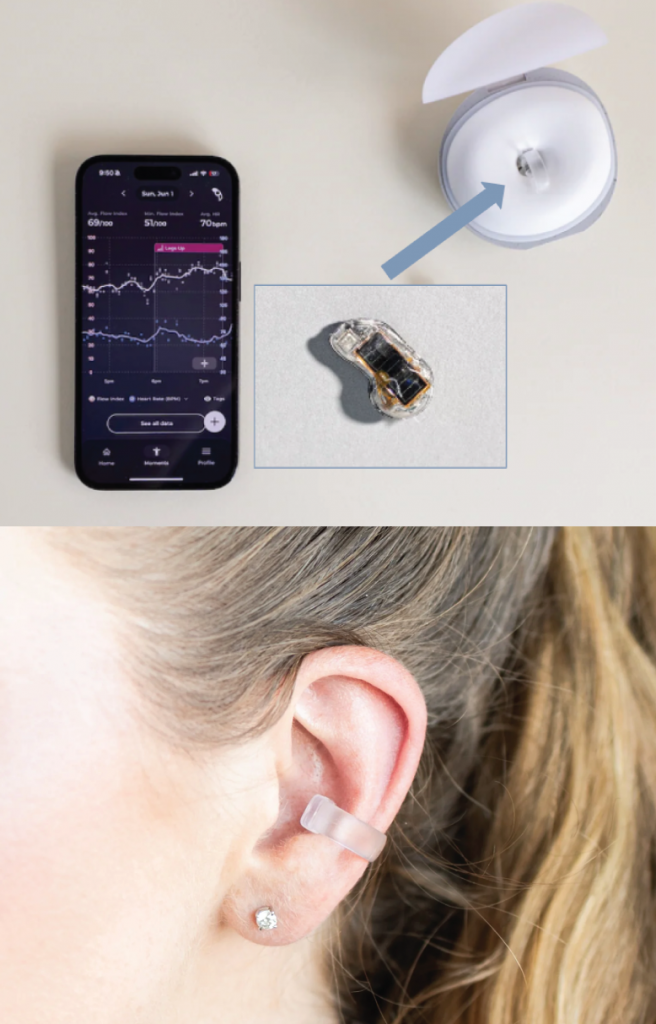MassAITC Cohort: Year 5 (AD/ADRD)

Initial Proposal Abstract: The Lumia ear wearable is a miniaturized device that monitors blood flow to the head using photoplethysmography (PPG) technology. This pilot project aims to adapt Lumia for older adults with Alzheimer’s disease and related dementias (AD/ADRD) by integrating an AI-powered, voice-controlled assistant for symptom tracking. The assistant will enable intuitive, real-time symptom and activity annotation, converting natural speech into structured, time-stamped events, which reduces reliance on manual logging and supports both participants and caregivers in everyday settings.
In a prospective pilot study, 20 AD/ADRD patient-caregiver pairs will participate in a baseline in-clinic session followed by one week of at-home use. Continuous physiological data (blood flow to the head, heart rate), voice-tagged events, and human factors data (adherence, usability, comfort, and interaction frequency) will be collected. Feasibility and usability areas of interest include average device wear time, successful data capture at home by participants, and user satisfaction with the adapted system.
Finally, AD/ADRD-specific data collected from the pilot will be used to fine-tune Lumia’s algorithms to account for age-related differences in movement patterns and arterial physiology. The study will generate a final report summarizing user and caregiver feedback, technical performance, and priorities for feature refinement, providing a roadmap for future development and subsequent clinical studies.
Outcomes:
- New Product Launch: Lumia 2 Smart Earrings
 Lumia is bringing their lightest wearable tech for measuring blood-flow to a whole new market with the introduction of a fine jewelry inspired smart-earring form factor with expanded health monitoring features. BOSTON – Nov. 18, 2025 – Lumia today announced the launch of Lumia 2, the world’s first smart earrings… Read more: New Product Launch: Lumia 2 Smart Earrings
Lumia is bringing their lightest wearable tech for measuring blood-flow to a whole new market with the introduction of a fine jewelry inspired smart-earring form factor with expanded health monitoring features. BOSTON – Nov. 18, 2025 – Lumia today announced the launch of Lumia 2, the world’s first smart earrings… Read more: New Product Launch: Lumia 2 Smart Earrings - Funding: $7 million venture capital seed raise
 Boston-based wearable health company Lumia has raised $7 million from J2 Ventures, BonAngels Venture Partners, and angel investors to commercialize Lumia 2, its new generation of smart earrings that monitor blood flow in real time. With an additional $5.1 million in government contracts and grants, the company’s total funding has… Read more: Funding: $7 million venture capital seed raise
Boston-based wearable health company Lumia has raised $7 million from J2 Ventures, BonAngels Venture Partners, and angel investors to commercialize Lumia 2, its new generation of smart earrings that monitor blood flow in real time. With an additional $5.1 million in government contracts and grants, the company’s total funding has… Read more: Funding: $7 million venture capital seed raise
